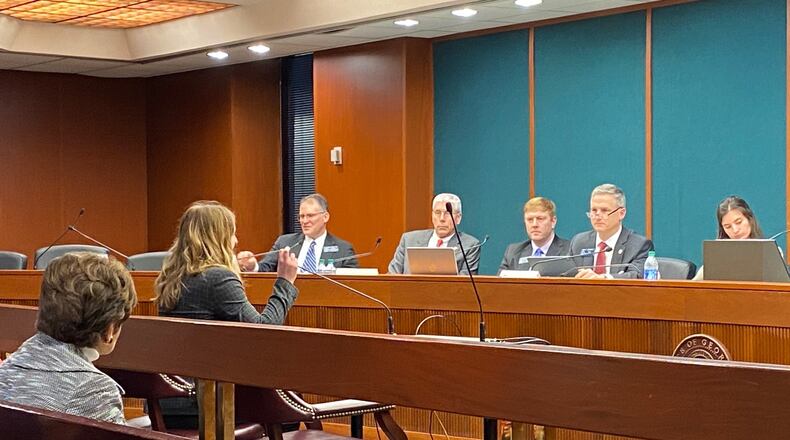The Georgia Senate’s judiciary committee heard arguments Wednesday from several students supporting legislation that would prohibit specific locations for students and others to speak on the state’s public colleges and universities.
Senate Bill 318, titled the "FORUM Act" is the latest attempt by Republicans in recent years to combat what they say has been harsh or unconstitutional treatment by campus officials and some students of speakers, particularly those with conservative viewpoints or representing faith-based organizations.
“[P]ublic colleges and universities in this state and elsewhere are failing to provide adequate safeguards for these constitutional rights of their students leading to a stifling of expression on campus,” the bill says.
The University System of Georgia, which manages operations of the state’s largest public universities, have rules that say schools may designate accessible, high-traffic locations on campus as public forum areas. The rules, though, may not be used to prohibit students, faculty or staff from engaging in communication elsewhere on campus.
The bill would allow school officials to determine “reasonable time, place, and manner restrictions” for campus speakers. Schools found by a court to have violated the rules would be subject to a fine of at least $5,000.
Students and organizations have filed several lawsuits against Georgia schools in recent years claiming institutions violated their rights to speak or hand out fliers on campus. Students told committee members stories of being heckled in classrooms and in other locations on campus.
“I believe there’s been an effort by administrations, student governments and bureaucracy on campus to suppress students’ rights to free speech,” Jeb Edmondson, 21, a University of North Georgia senior, told the committee.
University System officials told the committee its rules offer many of the protections included in the bill.
Representatives from the American Civil Liberties Union and Georgia Equality raised concerns about potentially discriminatory aspects of the bill.
The bill's main sponsor, Sen. William Ligon, R-Brunswick, said he plans to meet with University System officials and other organizations to discuss potential changes to the legislation before it comes to the committee for a vote.
“These students shouldn’t have to file lawsuits to ensure their First Amendment rights to free speech,” Ligon said in an interview after the meeting.
About the Author
Keep Reading
The Latest
Featured



